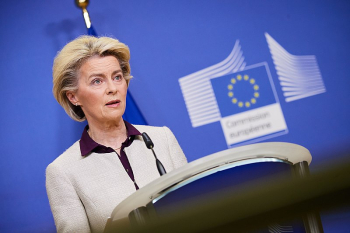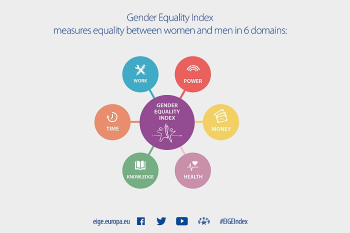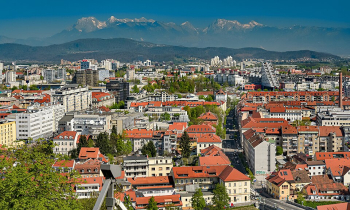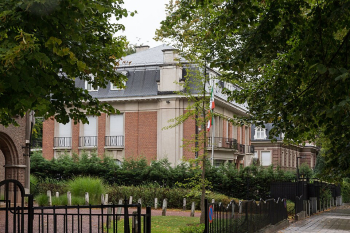
In Germany, the far-right party Alternative for Germany (AfD) is gaining popularity, with a recent poll placing it in second position ahead of Chancellor Olaf Scholz's SPD.
A YouGov poll published on Friday (9 June) revealed that 20% of German voters would give their vote to the far-right AfD, making it the second strongest party behind the CDU (28%), and ahead of Scholz's SPD (19%).
Originally founded as a Eurosceptic party, the AfD has shifted towards the populist right in recent years, with a focus on migration. Since the beginning of the year, it has experienced an unexpected surge in popularity, surpassing the Greens, another member of Scholz's three-way coalition, in mid-April, according to polls.
"We have a unique selling proposition. Unlike everyone else, we say that sanctions do not harm Russia but our own population," said Tino Chrupalla, co-chair of the party, to ZDF.
Migration back on the agenda This is partly due to the resurgence of migration in public discourse, according to Uwe Jun, a political scientist at the University of Trier, as he told EURACTIV.
"The issue of migration has recently become much more important again, and when that topic is at the top of the agenda, the AfD always surges in polls," Jun told EURACTIV.
"The reason is that a significant number of people sympathize with the AfD's stance on the matter. There is no majority among Germans in favor of liberal migration policies, but rather an inclination towards a more restrictive position," he explained.
The number of asylum claims in Germany has increased by 80% between January and March 2023 compared to the same period last year, according to the Federal Office for Migration and Refugees.
Party popularity Jun also sees the AfD's success as a result of the lack of popularity of the so-called "traffic-light" coalition. The SPD, Greens, and FDP have become entangled in contentious infighting over energy policy and spending. According to several polls, the coalition no longer holds a majority.
"The protest vote plays a role when a government fails to satisfy voters with its policies – and that is currently the public perception of the traffic-light coalition," Jun said.
The current success of the party is not entirely unprecedented. In 2017, during the first federal election after the migration crisis of 2015, the AfD garnered 12.6% of the votes, making it the largest opposition party in parliament. Furthermore, a national poll in 2018 placed it in second position ahead of the SPD at 18%.
"This worries me," said Chancellor Olaf Scholz regarding the recent surge in AfD's poll ratings in an interview with broadcaster RTL. However, he also stated that avoiding discussions about evident problems would be the "first big mistake that one could make."
The opposition has resorted to blaming the coalition for the AfD's strong poll ratings with increasingly provocative statements. Friedrich Merz, leader of the CDU, the largest opposition party, drew attention last weekend when he tweeted that "every gendered newscast means another 100 votes for the AfD."
There are also significant geographical disparities in the party's popularity: the AfD is the most popular party among voters in the regional states of Germany's east, which used to belong to the communist German Democratic Republic (GDR), according to a Forsa poll from earlier this week, with 32% support, compared to 13% in the rest of the country.
"The AfD is particularly popular in Eastern Germany because the population is more skeptical towards migration, and there is a higher potential for protest votes," says Jun.
This development will be of particular interest in the run-up to a series of regional elections in Eastern Germany in 2024. In Saxony, where voters will go to the polls next autumn, the AfD managed to secure 27.5% of the vote, coming second behind the CDU in 2019.
However, it remains to be seen to what extent the AfD's recent surge in polls will translate into electoral consequences.
"There is sometimes a so-called bandwagon effect, meaning that when a party is popular, some people support it because of its greater popularity. It is hard to say if this is playing a role at the moment as well," Jun said.
He argues that it "depends on many factors" and is "hard to predict at this point" whether the party will manage to translate its temporary high into tangible success. Photo by Cherubino, Wikimedia commons.
















